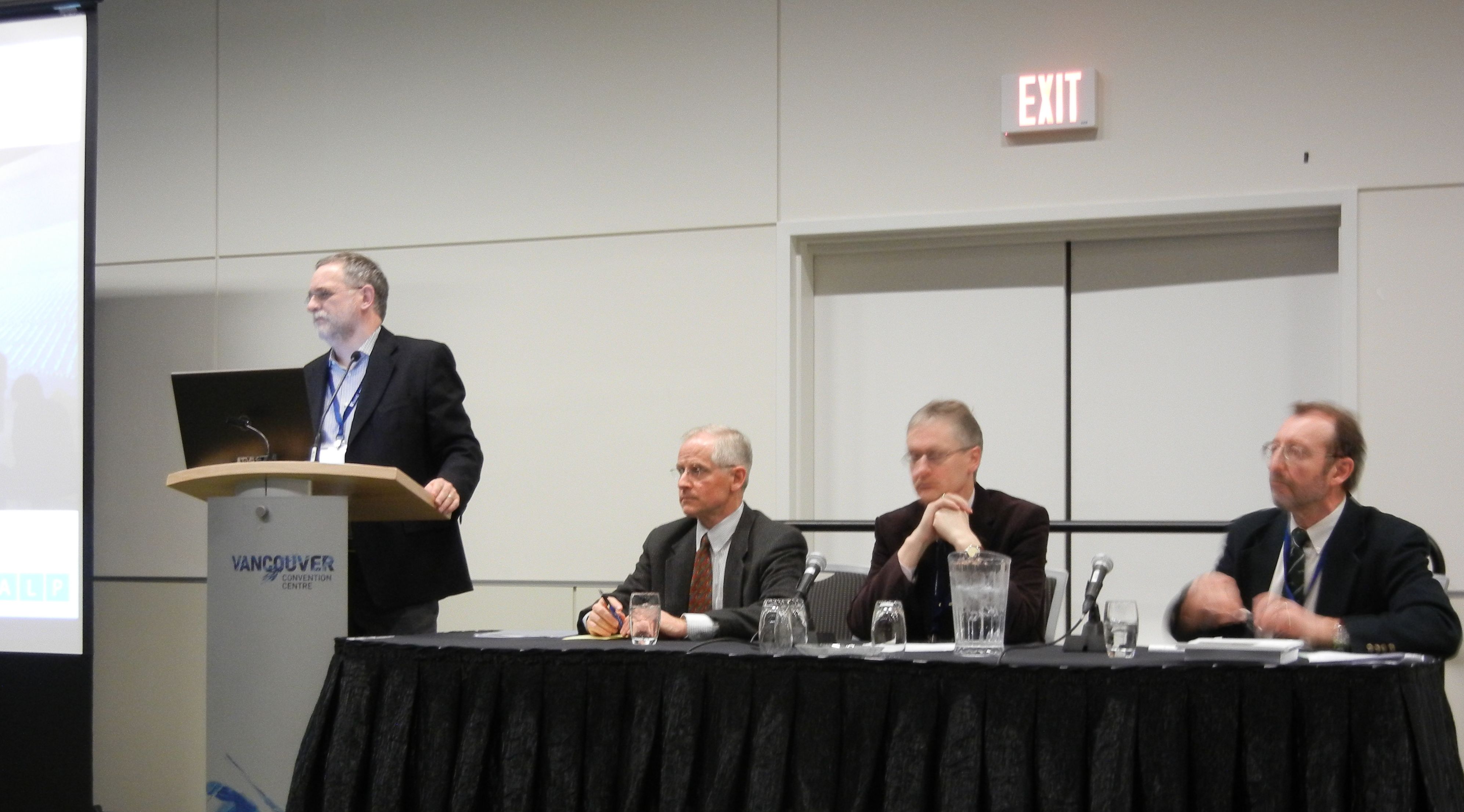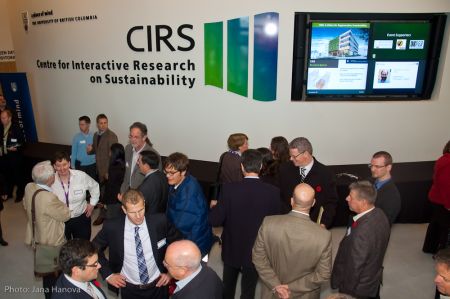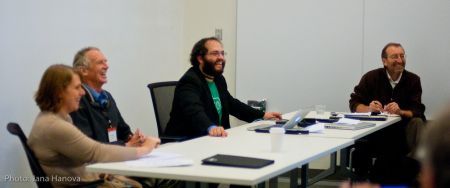November 3rd-5th, the new
Centre for Interactive Research on Sustainability (CIRS) at UBC had its Opening Conference under the title "Celebrating CIRS – Accelerating Sustainability". As part of this conference, the "Community Engagement and Social Media" theme hosted two sessions which are of particular interest for this blog:
Social and visual media: Tools & techniques for engagement and
Bridging processes and perspectives into the future. Key lessons from these two sessions are summarized below:
The first presentation on "
Social and Visual Media as Tools & Techniques for Social Engagement" was given by
Ian Bishop (University of Melbourne). Focus of his presentation was a project on Tasmanian forest management which involved a GIS-based scenario builder and ScenarioChooser (
see my previous blog entry). The project was complemented through an evaluation showing that the overall process was effective, although some people made little use of the visualizations. In terms of interactivity, the project had chosen panoramas as a tradeoff between effort and impact and the evaluation showed that these panoramas were indeed effective.
Next, Katy Appleton from the University of East Anglia gave an overview of evaluation research with regard to climate change visualizations ("Evaluating the Use of Visualization for Communication about Climate Change"). She asked what works best and how far visualizations can improve understanding, engagement, support for policies, and individual change of behavior. Considering the technical development and the lack of evaluation research described by Lange (2011) in "99 volumes later. We can visualize. Now what?" it became clear that we need an updated research agenda on the evaluation of landscape visualization.
Finally, Joe Salomon from 350.org provided a visually strong link to activism and shared his stories how 350.org got millions of people in every country around the world except North Korea involved in climate action. Social media such as twitter did play an important role and perhaps educational games will do as well but in the end, "real life is the most exiting game".
The following panel discussion addressed questions how to integrate visualizations and social media in the best way, how to engage people, and how to evaluate such projects.
The afternoon panel was started by Arnim Wiek (Arizona State University) who addressed the question of "Effective Stakeholder Engagement in Transformative Sustainability Efforts" with a case study from Phoenix with the emphasis on transformation. There are some good scenario studies but how do we get from scenarios to actual implementation, i.e. truly transformative outcomes? Arnim Wiek finished with six recommendations how to support transformative action, i.e. 1) go beyond scenarios, 2) go beyond the usual suspects, 3) train and coach facilitators, 4) move from extraction to negotiation, 5) embrace community diversity, 6) mobilize the Decision Theatre at CIRS. For the later, he also recommended increased collaboration and a shared research agenda.
Second speaker at the afternoon panel was Michael Flaxman (MIT), who presented a project on "Climate Change Adaptation in Southern Florida's Everglades Landscape: A Spatial Resilience Planning Approach". In this project, a scenario-based participatory stakeholder process with about 200 professional community members was implemented. The goal was to simulate alternative futures considering climate change; effects on wildlife habitats and species; and provide a sensitivity analysis of policies. The three drivers for the scenario development were 1) rapid population growth, 2) planning assumptions regarding land use and water and 3) climate change. The planning process was very well structured and accompanied by an evaluation, allowing to draw most valuable insights. Visualizations, especially in the form of maps, were another integral part of the process and Michael Flaxman particularly suggested interactive web maps as a very promising tool for regional planning.
The third speaker was Jennifer Penney (formerly Clean Air Partnership) and she gave a hands-on view of "Engaging Local Government in Climate Change Adaptation".
Some suggestions from the final discussion were that we have to go beyond anecdotal evidence in our evaluation research; that we should build a shared online database of decision-support tools; and to have more collaboration in general. In planning, maps as "boundary objects" are extremely useful, especially if they are communicated together with a narrative and pictures. However, it is still open how far such processes will trigger transformative change but here, planners may learn from the
Transition Town movement and researchers can contribute through more cooperative longitudinal evaluation.



